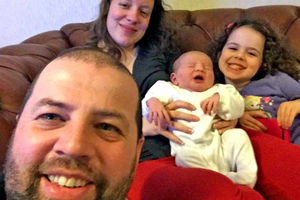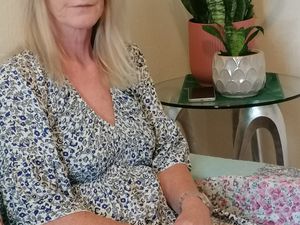Star comment: Tragedies could be prevented
The death of Shropshire baby Pippa Griffiths has features with which we have become sadly familiar, principally the missed opportunities to save her life.

Lessons have been learned. They always are. But the preventable death of a one-day-old child is a high price to pay, and a devastating loss for her parents.
In so many things information and knowledge is power, and that is one of the particular lessons here.
The infection which led to Pippa's death is one that many mums-to-be may well be unaware of, which is hardly surprising, as if nobody tells them, how would they know?
It was Group B streptococcus, or GBS, which can cause meningitis, septicaemia, and pneumonia in newborn babies. One baby dies a week.
Pippa was born at home at Myddle, with two midwives, but mum Kayleigh was not given a leaflet following the delivery which would have flagged up warning signs to look for.
Nevertheless, Kayleigh knew something was wrong and raised concerns with a midwife over the phone. But the right questions were not asked. Pippa deteriorated and she and Kayleigh were flown to the Princess Royal Hospital in Telford. It was too late to save her.
In the wake of this tragedy a new script has been created to ensure mothers in Kayleigh's position are questioned thoroughly and systematically - if she had been, Pippa would have been admitted for treatment and would, in the view of the coroner at the inquest, probably have survived.
There is a wider issue, that of whether there should be screening against Group B Strep.
The Rev Charlotte Cheshire, a curate who lives in Lawley, has a son, now aged six, who survived the infection at birth but has been left profoundly disabled. Earlier this year Mrs Cheshire went to Parliament with a petition calling for testing to be routinely and freely available. She says she has been told that no action will be taken to introduce routine screening.
Group B Strep, she says, is completely preventable and it makes no sense not to introduce screening.
Addressing the issue of cost, she makes two points, one of hard finance, and one of humanity. The cost of screening, she says, is vastly outweighed by the emotional cost to families affected, and her son's continuing treatment for a preventable catastrophe has cost the NHS hundreds of thousands of pounds.
These are two sad human stories. They will raise awareness of the terrible potential consequences of Group B Strep. But it would be much better still if these stories did not have to be told.





